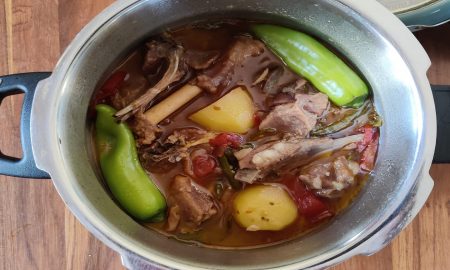When I was growing up, the Chicago suburbs of Chicago ranked within a hierarchy of goodness and desirability. You had the ones on the bottom with their stick trees and dirt front yards, and their little matching houses one by one ticky-tacky. And you had the middle suburbs which had been around long enough to have lawns, fences and old dogs. Then there were the suburbs like mine, the ones along Lake Michigan, that had grand estates with stone fences and iron gates, built right after the Chicago Fire in 1871 when rich people grew afraid for their nice things and wanted to live near water in case the fire ever came again. Our suburb was the best.
The houses in my suburb were built around a fake little town with high-end salons, breakfast cafes, and fancy shops that carried things no one needed like Danish candlesticks and glass door-knobs.
Our police, maids and gardeners –the help—did not live in our suburb but rather they lived in the city. They took the elevated train home every night because we did not need them after dark.
Our suburb had the best public schools in the nation but as for my older brother and me, we went to private school. My parents paid a driver to take us to school and wait in the car until it was time for him to drive us home.
I don’t think my parents much liked me. They preferred my brother who was more like them. They used to say I was like my grandmother Testino, as if that were a bad thing, for she was quiet and liked to read, or as my parents would say, she had no personality. My brother was loud and self-confident to the point of being brash, and he was dominant to the point of cruelty. He was always teasing others to put them down so he could be on top. He was always mean to me, although I did not take that personally because he was mean to everyone, a quality my parents admired. They admired it because they believed you had to be tough in this cruel world or else sharks would eat you because this world is a hard place where you had to kill or be killed.
My parents didn’t have many friends because they preferred their own relatives. They had parties all the time, perhaps three or more a month. With all these relatives, you always had an occasion for a party. Some were made-up like Father’s Day; some were family like birthdays, weddings and graduations; and some were societal like Christmas and Easter. We celebrated them all with my aunts, uncles and cousins. I never missed having friends because we had so many relatives.
I did not have many friends when I was little because I liked to be at home. I liked to sit by the lake after school and just relax on high rocks and think. My mother was always afraid I would get kidnapped, raped and killed like Senator Percy’s daughter so she would assign Ike Washington, our gardener, to watch me. I did not need him, although I thought he was nice. Like me, he was quiet, so that was perfect.
Every spring Ike would plant tomatoes along the back fence of our property. I was in kindergarten when I first noticed them. To my child’s mind, they were wonderful because they grew up in vines and had yellow flowers that in some mysterious way turned into tiny little balls that swelled and became tomatoes. That was magic to me.
I learned how much can go wrong before they become plump and red and ready to eat. They can fall off the vine too early. An insect can infest them. Weeds can choke them to death. Or an animal will eat them just when you think you’re home free, as Ike would say.
While I was in kindergarten class, I’d often worry about the tomatoes because I could not see them or keep them safe so they could grow. My teacher would be at her blackboard talking about mathematics or some such thing, and covering the board with her scribblings, but my mind would be on budding yellow flowers or the worrisome possibility that a squirrel was eating the tiny green balls.
I told Ike about my worries, and he was nice, so he reassured me that we would build a scarecrow. We did not ask my mother for things, but built it from clothes in the St. Vincent de Paul box and various buttons and beads. Ike had grown up on a farm in Mississippi so he knew about things like scarecrows and he could tell by the rain and sunlight if we would get good tomatoes. He let me do most things on my own so that the tomatoes could be mine as well as his.
The year I was in kindergarten the tomatoes came up despite me. I remember the first time I took them to our cook. I watched her hold the rosy red orbs in her hand, feeling them gently, and telling me that she could tell by the feel of them that they would be delicious, sweet and full of flavor, and nothing like the hard ones that all looked alike that you bought at the store. She sliced them into salad, and that night at dinner, when my mother and father ate them, I felt for the first time that I had power. My power was that I could make everyone at our table happy.
The next year Ike taught me how to grow tomatoes from seeds. You have to start them in March, and you plant your seeds in little cardboard pots by the biggest window in your room. They like water and good rich soil. What’s more they love when you fan them because it reminds them of wind in their leaves. So every day after school I’d run upstairs to my room where ten little pots with tiny sprouts were growing in my window. And every single day I’d water them and fan them.
Ike and I had to wait until after Memorial Day to plant them along the fence. Ike told me to plant them sideways in the ground because that way, they’d have to work to punch up out of the soil, and they’d get stronger roots, but I was too afraid to challenge my seedlings like that. After all, I had been their mother since birth. I did allow Ike to plant one of them sideways, and sure enough, he was right – it became the strongest and heartiest of them all and yielded the best fruit.
I watered them every day after school, even though Ike said it was best to water them in the morning. When they were tall enough, we staked them and pulled off their lower leaves so they’d be less likely to get a fungus. The more the summer sun shined, the bigger, the better, the rounder, and the redder came the tomatoes.
It was the third year of the tomato, and I was in the second grade. After we planted the seedlings, Ike told me that the best thing to do was to build cages around them to protect them from vermin and varmints. The problem was neither of us had any money to buy the materials to build the cages. My father was never home, and my mother was hardly there at all. She was always with her sisters, or having her hair done, or doing a spa day, or having lunch out, or shopping in downtown Chicago on Michigan Avenue. But once, right before dinner, I was able to catch her alone.
“Ike says we should build cages around the tomato plants,” I said.
“Why would you do that?”
“To keep up vermin and varmints.”
“Don’t use the words vermin and varmints,” she said. “Why do you need cages? You never made cages before now.”
“Ike always wanted to, but he was too scared to ask you for the money. He reckons we need at least fifty dollars for stakes and fencing net.”
“Don’t use the word reckon,” she said.
“If we can get our cages and our stakes up, Ike says it’ll be the best year ever. The year of the tomato.”
Mother sighed. “It’s harmless enough,” she said. “Go get my purse.”
I ran upstairs, the huge staircase that spiraled its way up to dominate the foyer. I ran straight to Mother’s make-up room, with its great folding mirrors encircling her vanity table full of bottles and potions and three big drawers overladen with lipstick, blush, shadow and liner. I grabbed her purse with the golden double Cs on it, and ran downstairs before she could change her mind. She handed me five ten-dollar bills from a roll of them tucked into a zippered pocket in the purse.
“That’s a lot of money for an eight-year-old,” she said. “Go find Ike and have him take you to the hardware store before you lose it.”
“I think there will be tax,” I said as solemnly as I could, so as to state the reality of the situation without sounding greedy or sassy.
She sighed again, and opened her purse again, and gave me three one-dollar bills.
“Thank you,” I said. “You’re going to be glad you did this when you see them tomatoes.”
“Those tomatoes, not them.”
It was a perfect June day, and I had the whole day in front of me because I had no school. Ike and I drove to the outskirts of Chicago where they had practical stores with garden equipment. He had already measured the dimensions of our garden, and figured how high the plants would grow so as to calculate the exact square footage of red netting and green metal stakes needed to build our cages. After the clerk rang up our bill, we had four dollars left, enough for two ice cream cones from the drive-through at the sundae shop.
We worked that entire day building those cages, and all I could think about was the moment I would present my mother with my tomatoes. I could anticipate her ooo’s and ah’s, and her great manifestation of gratitude when she realized how perfect they were.
That summer I woke early every morning and watered each tomato plant before breakfast. I plucked off dead leaves and the ones on the bottom of the plants so they could grow stronger. Once when a tiny white spot of blight appeared on one tiny leaf, I sprayed it and all the other plants with bug killer.
One day the beautiful yellow star-shaped flowers turned into tiny tomato heads, green orbs that swelled bigger and bigger each day. For the most part, they were perfect. They were ripening without any hard green heads or yellow shoulders, or cracked ribs that spit out tomato juice.
On that strange night in August, Ike and I were only a few days from picking our tomatoes. Loud talking and yelling woke me up, and I could recognize my mother’s voice, yelling and screaming. I looked outside and saw two police cars in the round driveway that led to our house. I leaned further out on my Juliet balcony and saw four police officers in their uniforms.
At first I thought something bad had happened to my father. He worked nights, and my mother always worried he would be killed or hurt. I assumed his job was dangerous although I had no idea what he did or where he went every night. It was one of those topics that was permanently closed in our family.
But as I stood on the balcony, I saw my father and my mother in their bathrobes with the police officers. My mother was hysterical, yelling and kicking my father, and saying, “It’s all your fault.” My father was trying to comfort her, but she was not having it.
I heard my father say to a police officer, “She’s in shock,” and he replied, “Of course, of course.”
Everyone seemed to have forgotten about me. When my parents went inside to get dressed, they were still fighting. I could hear my mother walk toward my room, so I ducked back into my bed and pretended to be asleep.
“Lola,” she whispered, “You’re going to go to your Aunt Lucille’s for a while. Mama and Papa have to go out.”
Her eyes were red from crying, and her face was swollen, so I did not dare to ask any questions. The housekeeper drove me to my aunt’s house and left me there without telling me what was going on.
Aunt Lucille had been crying before I got there, but then she was nice to me. She put me into a big bed in her guest room, and told me to go back to sleep because it was only two in the morning.
“Did something bad happen?” I asked.
“Yes dear.” She started to cry.
“What?”
“We’ll talk about it tomorrow.”
“No, now. Now,” I insisted.
“It’s your brother.”
“My brother? He’s away at college.”
“He was –.” Her voice broke. “He had an accident, and he’s not with us anymore.”
“He died?” I asked.
I felt annoyed by these grown-ups. I was not a baby. I knew things died from my experience with tomatoes.
Aunt Lucille started sobbing, which made me feel ashamed for asking her questions.
I patted her on her back.
“Don’t cry,” I said. “Everything will be all right.”
My parents kept me with my Aunt Lucille for many days. All I could think about was my tomatoes. I was so worried about them.
My brother had never taken any interest in me or my life in the third grade, or my tomatoes. I didn’t really understand his life. He was twenty years older than I was, and he was away at college as long as I could remember. I had no idea what college was or why he went away there.
That terrible night in August he had been at a party. He was supposed to sell some marijuana to some people who were to meet him at the party. They came to the party to pick it up, and they were supposed to pay my brother some money but then they told him he was not getting any money. I thought that was unfair myself.
When my brother would not give them what they wanted, they shot him.
I don’t think my father had anything to do with it because he had been home that night. My father was not at the party. But my mother blamed him and said, “Like father, like son,” even though my brother was nothing like my father. He was so much younger, for example.
Later that summer my mother moved in with Aunt Lucille and me. I was not allowed to go home, even when I pleaded with her for the sake of my tomatoes. After a while, I heard her and other grown-ups talking about how they were going to sell our house, and that meant I would never live there again, or see my father or my tomatoes.
I felt so lost at Aunt Lucille’s house. I was used to waking up to water my plants, and then care for them in the afternoons. I had books and video games and a television at Aunt Lucille’s, but I missed my garden and my friend Ike. It was no use talking to my mother. She was too filled with hatred for my father.
Many more days passed, I’m not sure how many. But one day, I was sitting on Aunt Lucille’s porch when a big brown truck pulled up to the house. The driver handed me a big box, a great big rectangular one made for a fur coat or something big like that. The box was addressed to me. I took the box into the kitchen where Aunt Lucille’s maid was washing the floor with a water vacuum. She snapped it off when she saw me.
“Lord, that box is almost as big as you are!” she said. “Let me help you.”
She took out a butcher knife and snipped off the tape. Then she pulled it open. There, like perfect little red soldiers lined up in battle formation, were five rows of beautiful ripe tomatoes wrapped in green tissue paper. Inside the box I found a tiny white notecard that said, “To Lola, the best we’ve done. Ike”
I laughed with joy. There were so perfect and beautiful, just as I pictured them to be. I was sure when my mother saw them, she would feel happy again. She would smile and tell me how beautiful they were, and how lucky she was to have me as her daughter, someone talented, especially since she no longer had a son. It would be my moment, the moment that made all my work and diligence worthwhile.
“Just wait until I show them to my mother!” I said. “Wait until she sees them.”
Then, I was sure, everything would be all right again.
***
Photo by Yves Deploige on Unsplash





